The Story Behind EA’s Fall From Grace in The Eyes of Players
PocketEpiphany
Published
07/21/2021
in
facepalm
Few words can evoke such mixed feelings as EA Games. Some of us remember their killer games from decades ago. And the rest remember the corporate monstrosity that is modern EA.
Both memories are correct. To find out what went wrong with the company, we are jumping into the story behind EA’s fall from grace.
Both memories are correct. To find out what went wrong with the company, we are jumping into the story behind EA’s fall from grace.
- List View
- Player View
- Grid View
Advertisement
-
1.
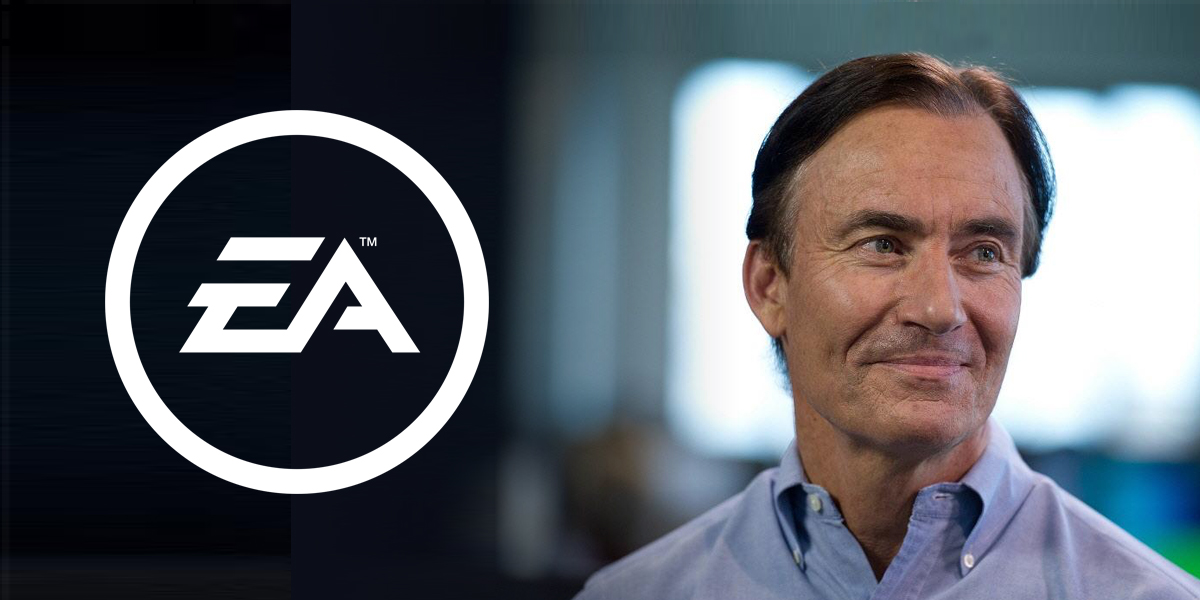 Early Visionary
Early Visionary
Interestingly, Electronic Arts is one of those companies with a visionary at its heart. And that visionary is Trip Hawkins.
Hawkins learned from the best while working for Apple, all while learning more about games and gamers. And in 1982, he spent every penny of his savings in hiring employees for his new business venture, Amazin’ Software.
Part of what helped the company grow is that Hawkins was very adaptable and very versatile. Those early days were very experimental, and he was basically throwing everything against the wall to see what stuck. -
2.
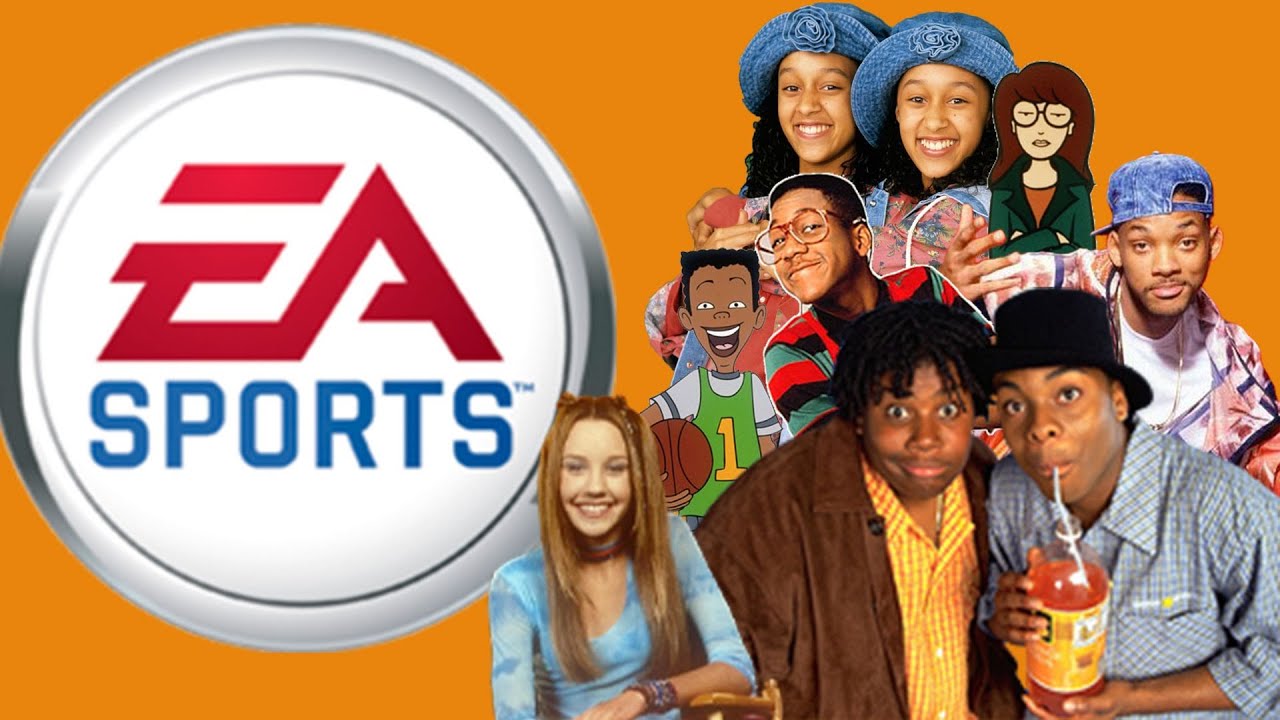 True Gaming Pioneers
True Gaming Pioneers
As you might remember, the 1990s were a hell of a time for EA. They threw in with Sega to create killer sports games, and these kinds of games would soon become a cornerstone of EA’s success.
Of course, Trip Hawkins was a bit distracted in the 1990s. His infatuation with creating new gaming hardware led to the embarrassment that was the 3DO console. But while he focused on that, EA focused on scooping up talented developers and studios.
Perhaps the biggest example was their acquisition of Origins, Inc. This brought over some design powerhouses, including Richard Garriott and Chris Roberts. Now, future titles in the hit Ultima and Wing Commander series would be EA titles.
Things were looking good for the company, and in 1995, they were awarded “best publisher” at the prestigious European Computer Trade Show. Basically, EA was kicking ass on computer and console alike at this point. -
3.
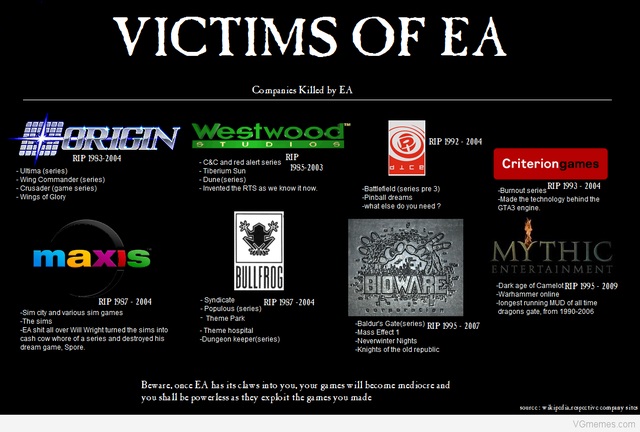 Assimilate and Destroy
Assimilate and Destroy
In theory, nothing is wrong with a larger company like EA acquiring smaller companies. After all, who wouldn’t want to have a bunch of successful writers and programmers under the same roof?
However, EA first pissed off gamers when they began buying these rival studios and then started shutting them down. For example, it was great when they acquired Origin in 1992, but they ended up shutting it down in 2004. It was cool when they snagged Command & Conquer developer Westwood in 1998, but they then shut them down in 2003.
Perhaps most notorious was how EA treated Pandemic Studios. Pandemic gave us those great early Star Wars: Battlefront games before getting acquired by EA in 2008 and then shut down in 2009. And even studios that EA hasn’t destroyed are just ghosts of their former selves (Bioware being a perfect example). -
4.
 Crunch Behind the Scenes
Crunch Behind the Scenes
Players were already annoyed at EA due to the dwindling quality of games and the fact that EA was responsible for killing so many great game studios. But things got worse in 2012 when stories about how EA treats their employees began emerging.
To meet game deadlines, EA expected employees to “crunch” and squeeze as many as 100 hours of work into a single week. It wasn’t common for employees to work 13-hour days, often having to work like this for seven days a week.
For some players, this was the real breaking point in their relationship with EA. Why bother supporting a company that mistreats employees while dismissing player concerns? -
5.
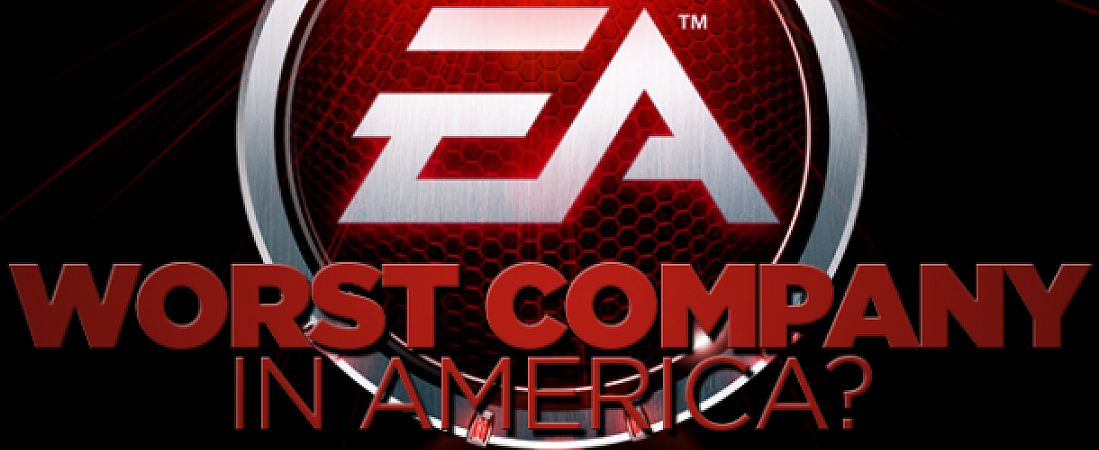 Officially One Of the Worst American Companies
Officially One Of the Worst American Companies
How much did public opinion turn against EA? We’ll put it to you this way: every year, the Consumerist lets readers vote for what the worst companies in America are. And EA managed to be the “winner” of this vote for two years in a row.
To put this in perspective, EA was up against companies the average consumer really hates, including Comcast and Ticketmaster. But public opinion had turned on the company in such a major way that even people who had never played a video game knew about their shady practices. -
6.
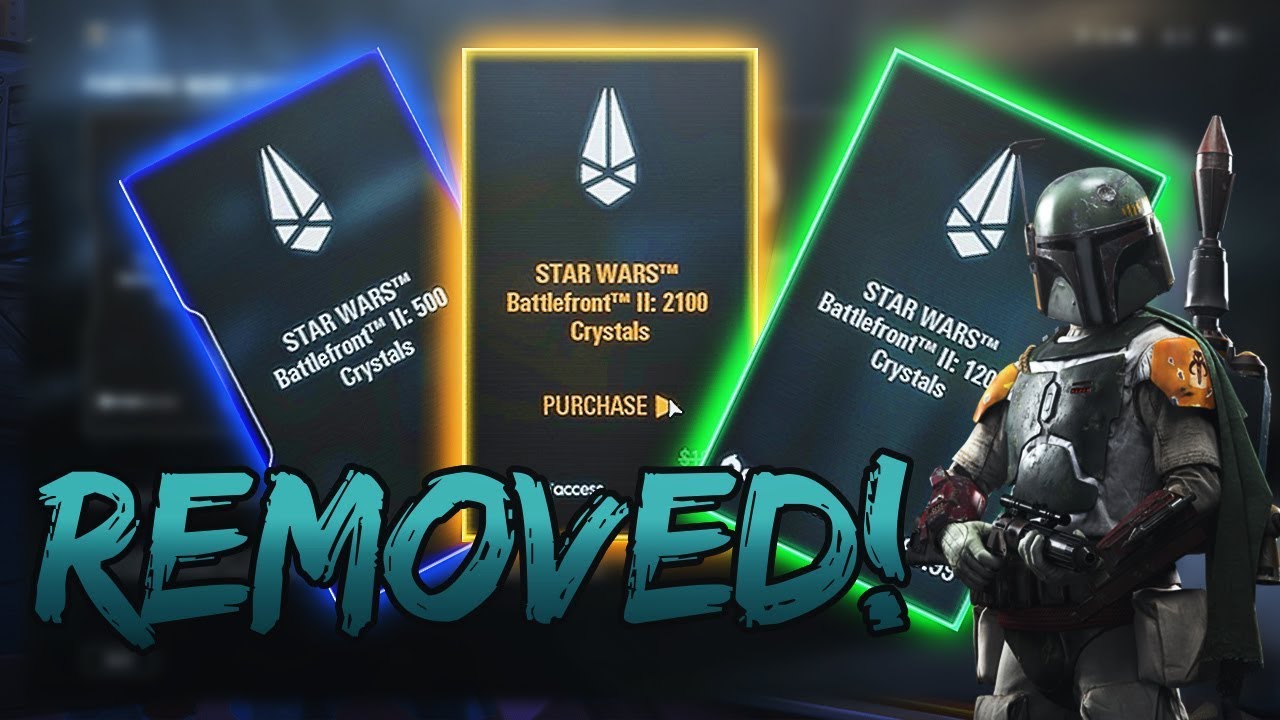 Microtransaction Madness
Microtransaction Madness
Of course, if we’re compiling reasons why players started hating EA, there is one word that will sum it up for most people. And that word is “microtransactions.”
The company has turned microtransactions in video games into its own secondary business. And those microtransactions help them pull in nearly a billion dollars from gamers each quarter.
However, microtransactions were also at the heart of EA’s stupidest mistake. Originally, they created Battlefront II in a way to encourage players to shell out lots of real cash for loot boxes. These boxes were necessary to unlock characters and even basic gameplay abilities, and players quickly realized that without spending real cash, they’d have to grind for dozens of hours just for the privilege of playing as characters like Darth Vader and Luke Skywalker.
In reaction to player outrage, EA made major changes to the game’s progression system so that you didn’t have to chase loot boxes down to experience the basic aspects of the game. And they claim they have learned from this mistake, but only time will tell. -
7.
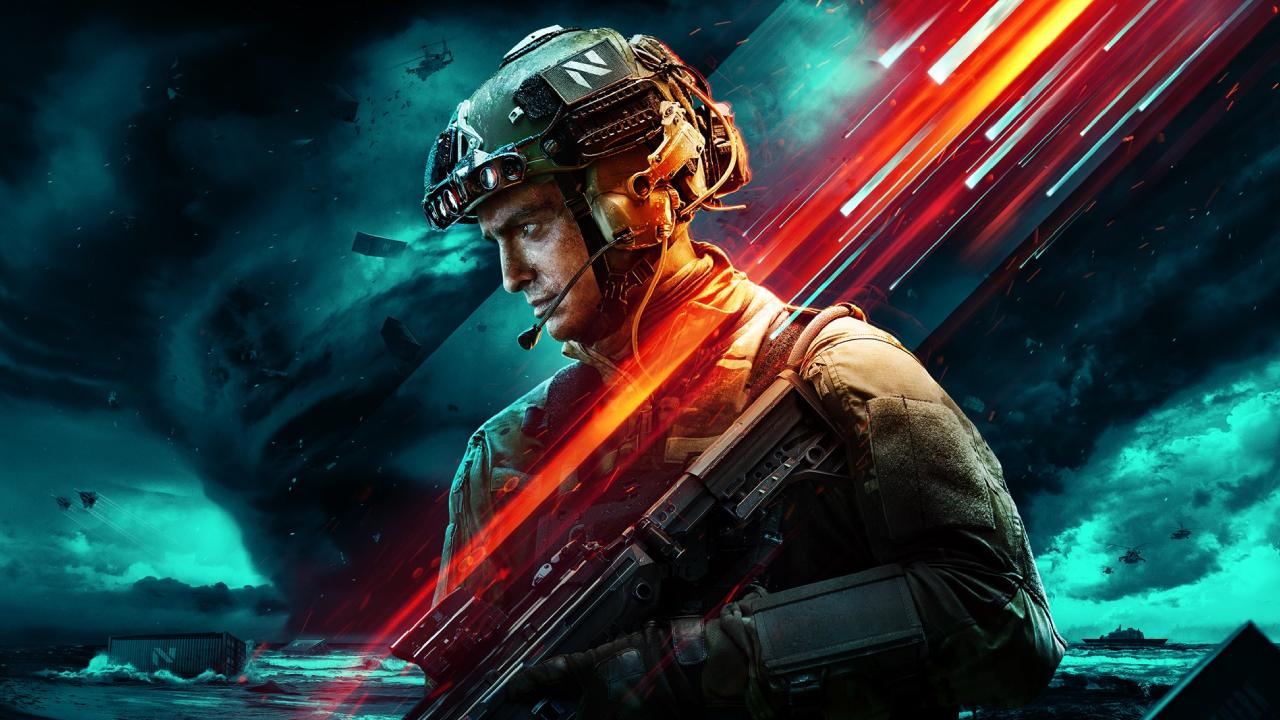 Uncertain Future
Uncertain Future
Now, EA stands at something of a crossroads. And what happens next is largely up to the players.
After all, gamers effectively vote with their wallets. If we want to see EA change, or simply see fewer EA titles, this will only work if enough players voice their opinion and stop buying EA games.
However, the EA Sports brand remains strong, and the hype for upcoming EA games like Battlefield 2042 is palpable. Between this and the undying popularity of the Sims franchise, it doesn’t look like EA is going away anytime soon.
- NEXT GALLERY
-

- 10 Reasons Why Cloud Gaming Is the Real Deal
Early Visionary
Interestingly, Electronic Arts is one of those companies with a visionary at its heart. And that visionary is Trip Hawkins.
Hawkins learned from the best while working for Apple, all while learning more about games and gamers. And in 1982, he spent every penny of his savings in hiring employees for his new business venture, Amazin’ Software.
Part of what helped the company grow is that Hawkins was very adaptable and very versatile. Those early days were very experimental, and he was basically throwing everything against the wall to see what stuck.
7/7
1/7







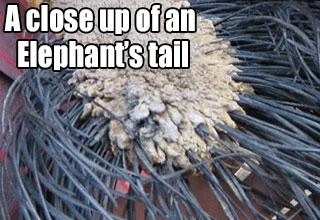
2 Comments